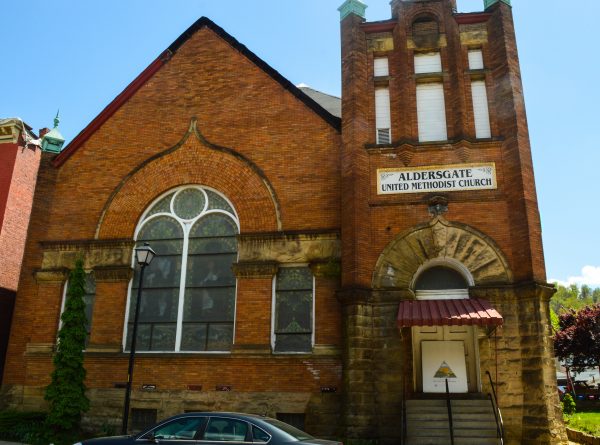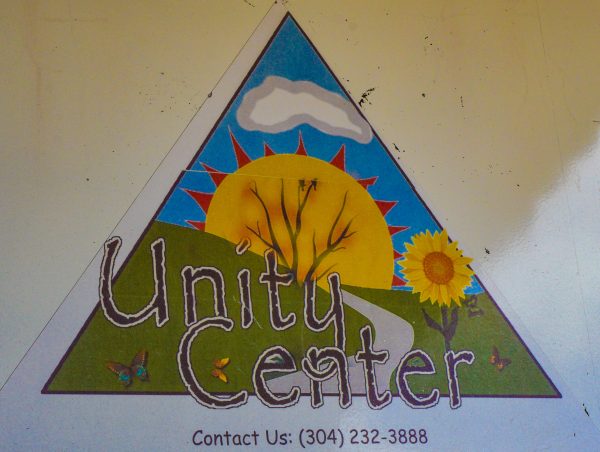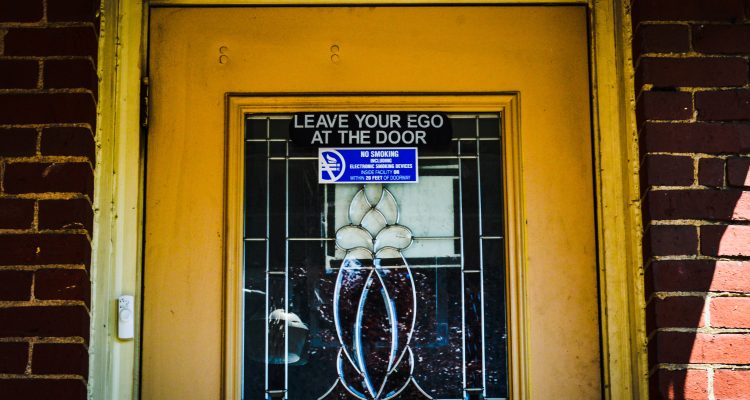It says what it says above the main door into the Unity Center in Center Wheeling – “Leave Your Ego at the Door” – but by the time people seek the help that’s inside their self-esteem is the lowest in their lives.
They are addicts, and forever they will be addicts even if living a successful recovery is their current reality.
It’s that strong, the want for more, and the new executive director of the Unity Center discovered quickly that the Wheeling area is throat-deep in the cesspool related to opioid dependency.
“I was aware of the issue because it’s a national issue, but what I didn’t know when I accepted the position at the Unity Center, is that I wasn’t aware of how big of a problem opioids are here in this area,” admitted Mary Hess, who assumed the position this year. “We do hear about the overdoses and about how law enforcement and EMTs have the Narcan, but we don’t hear the numbers very often, and the numbers are very scary.
“We’re talking about hundreds of overdoses in this area and thousands across the country, and now we know overdoses are taking place right here on a daily basis,” she said. “And now we know that opioids are in every neighborhood and every school, and it’s being sold to people of all ages. We have a drug problem, and it’s not just with adults or at our colleges, but our high schools, too. And, unfortunately, those drugs also are getting into our middle schools, too.”
Cocaine, Hess said, seems still to be an issue in the Valley and opioid addiction and heroin dependency, but Hess also has noticed the area’s need for a presence at social events.
“I have recognized that drinking gets attached to almost anything, and it’s not just here but in all of the areas where I have lived because it’s become part of the social thing,” she said. “It seems to be a national mindset that you can’t have a good time unless you are under the influence. Many people believe that drinking and drug abuse allows you to have more fun than what you would have sober.

“It gets into our minds because of what we see in the movies and on TV. It’s being hammered into us that, if we want to be like those characters in the shows, that we have to do exactly what they do, and pretty often that involves being under the influence of something,” Hess said. “Sadly, that’s becoming the norm, and it’s being taught to people at very early ages.”
The Unity Center is located at 2314 Chapline Street inside the former Aldersgate United Methodist Church, and the doors are open seven days a week so that several 12-step meetings and support groups can gather at various times each day. But, while recovery conversations take place within this sanctuary, the people in the unaffected public seem shy with the topic of addiction, Hess said.
“We really don’t hear much about it because most of the time people don’t want to even think about it. But then, too often, people suddenly find themselves in the thick of the situation because they’ve become addicted or someone in their families is struggling with addiction,” Hess explained. “The good news is that we have a lot of people in our community who are fighting to get clean, and that’s what the Unity Center is all about.
“It’s a busy place, and that’s both a good thing and a bad thing. It’s a good thing because of the support anyone can receive. It’s a bad thing because people continue to make those bad choices,” she continued. “And yes, in a lot of cases it all starts with an injury and a prescription for the pain, but when the pills go away and they find themselves addicted, far too often do people choose to feed that addiction by going on the streets.”
One support group that disbanded concerned family members of addicts, and Hess hopes it re-organizes in the future because the stresses and worries felt by those willing and attempting to assist loved ones toward recovery are unmeasurable but no longer unique.
“The members of an addict’s family are impacted so much that I feel it’s important to have that support group for them so they can come talk about what they are experiencing, and they can hear that they are not alone,” the director said. “Far too often are family members are at a loss for what to do about the person they love. A Family Support Group offers those chances to discuss those situations, so I would love to see another group form in the future.
“The family members sort of get lost because they don’t know what to do or how to help, but a Family Support Group allows for the recovery to begin, and it allows for more strength because they are not alone,” Hess said. “Such a group would also help the community recover from being hit by this epidemic.”

Epidemic?
It’s a heavy term that provokes immediate images of tragedy and helpless solitude, and Hess has heard how opioid addiction has taken control of so many lives in the Wheeling area.
“I’ve been told stories every single day by the people who are recovering at the Unity Center. Every day,” Hess said. “Addiction is a completely selfish disease. When you are in the middle of an active addiction, you aren’t thinking about how you are affecting anyone else around you. Instead, it’s all about getting that next fix.
“When you decide to finally get help and to get into recovery, you have to re-learn how to interact with people because you spent that whole time when you were using isolating yourself. You didn’t care about anyone else,” she explained. “You do what you want, to do and that’s all that is important. That’s why you have to learn how to live again once you stop using.”
Hess arrived in Wheeling an Iowa native who was graduated from DeVry University in the Columbus, Ohio, area with a business operations degree.
“I wanted to find a position that would allow me to give back to the community, and when I saw that the Unity Center needed a new director, I jumped at the chance,” Hess said. “What we do here is very important to me because we have that built-in support system that is willing to help anyone who chooses to walk into the building. That’s exactly why we are there and why we fight for our survival every day because of how important the issue of addiction is right now. As long as you want to get clean and sober, that support system will be there for you. It’s really that simple.
“It gives an addict a place to go to talk with people who have experienced what they are experiencing. That’s how addicts work through the steps in recovery. That’s how an addict stays sober,” she continued. “That’s how they learn to live again.”
The lack of available rehabilitation programs in the Upper Ohio Valley is an issue, Hess acknowledged, and because of financial impacts of addiction the free programs are always the most crowded with the longest waiting lists for admission. Even when individuals discover the path to recovery and have made the Unity Center sanctuary a part of their lives, the end results unfortunately don’t always involve success.
“We have lost members of our community at Unity Center. They relapse, or they think they’ve won the battle and that they can go back to recreational use, and then they get heroin off the street without knowing what they are buying,” Hess explained. “We have lost quite a few, and we have a wall in the building that is dedicated to remembering them and their fight against their evils.
“At times, we have candlelight vigils so we all can stop, take a moment, and pray however someone wants to pray to themselves for those friends we have lost,” she said. “And it’s a crowded wall.”
(Photos by Steve Novotney)



